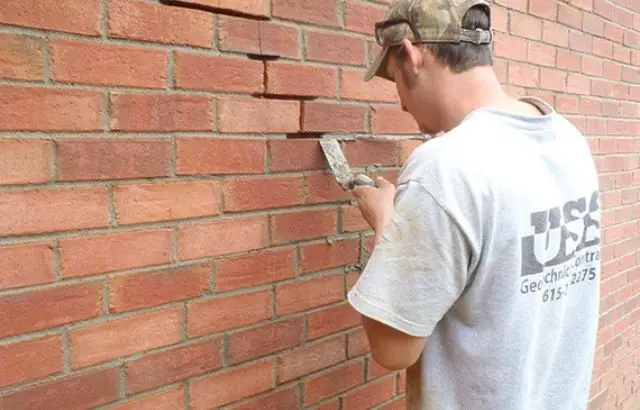Moving can be overwhelming. Anyone who’s experienced the maze of cardboard boxes, tape rolls, and endless checklists knows the process is far from simple. Many consider it one of life’s most stressful events, ranking alongside major milestones like weddings or starting a new job. This stress isn’t just because of the physical labor involved but also due to the numerous decisions and preparations needed before the actual move.
Fortunately, with the right planning, much of this stress can be alleviated. Proper preparation not only ensures a smooth move but also offers peace of mind, knowing that you’re ready for the transition. So, following certain tips and strategies and planning can have a great impact on your overall moving experience.
8 Things You Need to Do to Prepare for A Move
Here are some essential steps to help make your move less stressful.
Choose the Right Movers
Your movers play a pivotal role in your moving experience. Settling for just any company or choosing one based on price alone can lead to unexpected problems.
It’s crucial to invest time in researching potential movers. Begin by asking friends or family for recommendations. They can offer firsthand experiences and insights that online reviews might need to catch up on.
You can also find the best local movers in your area by surfing the internet. You can visit a mover’s website and check for essential credentials, like licenses and insurance. Additionally, online reviews can be invaluable.
They give a broader sense of a company’s track record. Remember, a few negative reviews among many positive ones aren’t alarming. But consistent complaints might be a red flag.
Hiring a moving company can greatly simplify your move. Experienced movers handle the heavy lifting, reducing the risk of damage to your items. They have the tools and knowledge to pack, load, and transport your belongings efficiently. Moreover, with professionals managing the logistics, you can focus on other tasks and transition into your new home with less stress.
Declutter and Sort
Before you even think about packing, decluttering should be at the top of your list. Why move things you no longer need or want? Start by sorting through your belongings.
Create categories, such as items to keep, those to donate, pieces to sell, and things to discard. This process will not only lighten your moving load but can also be cathartic, providing a fresh start in your new place.
For items you decide to sell, consider hosting a garage sale or listing them online.
Create a Moving Timeline
Moving isn’t a one-day event; it’s a process that spans weeks, if not months. Creating a moving timeline can be your roadmap through this process. Start by listing key milestones, such as the date you intend to move when to begin packing, and deadlines for hiring movers.
Having a visual representation of your moving timeline, like a calendar or even a simple chart, can help keep you on track. It’s satisfying to tick off tasks as you complete them, and it ensures you only leave things at the last minute.
Gather Packing Supplies
Once you have a clearer idea of what you’re moving, it’s time to gather packing supplies. At a minimum, you’ll need sturdy boxes, packing tape, bubble wrap or newspaper for cushioning, and markers for labeling. Consider the size and fragility of items when choosing boxes.
Pack with Strategy
Packing is more than just placing items in boxes; it requires strategy. Start by packing the things you use least. Seasonal items or those stored in your attic can be packed first. As you get closer to moving day, pack more frequently used items.
Similarly, it is crucial always to label boxes. A simple label like “kitchen” or “bedroom” can simplify unpacking. To be more organized, consider making a list of items in each box. This might seem tedious, but it will save time to find that one essential item amidst a sea of boxes in your new home.
Set Aside a “First Day Box”
Once you’re at your new place, you may need more energy to unpack immediately. This is where a “First Day Box” becomes invaluable. Think of it as your survival kit for the first 24 hours in your new home.
Pack essential items like toiletries, a change of clothes, medication, and some basic kitchen items like a kettle, tea or coffee, and some snacks. If you have children, remember to pack a few toys to keep them entertained. Think about your first night and morning in the new place and what you might need most.
Secure Important Documents
Your passport, birth certificates, house deeds, and other critical documents should be treated with special care. It’s advisable to keep these documents in a safe, easily accessible place during your move.
Consider using a folder or envelope specifically for these documents. Keep this with you during the move rather than placing it in the truck.
Prepare Children and Pets
Take time to discuss the move with your kids. Let them know why you’re moving and what they can expect. Encourage questions and address any concerns. If possible, visit the new home or area with them beforehand, as familiarity can ease anxiety.
For pets, the process can be trickier. Try to maintain their routine as much as possible before, during, and after the move. On a moving day, it might be best to have them stay with a friend or in a designated quiet area to avoid added stress.
My Opinion
Moving can be a complex process, filled with many tasks and emotions. However, with the right preparation, you can ensure it’s seamless. By following the steps outlined, you’re not only ensuring your belongings reach your new home safely but also that you, your family, and your pet transition smoothly. While it might be tempting to rush or skip some steps, remember that thorough preparation now can save time, money, and headaches later.




